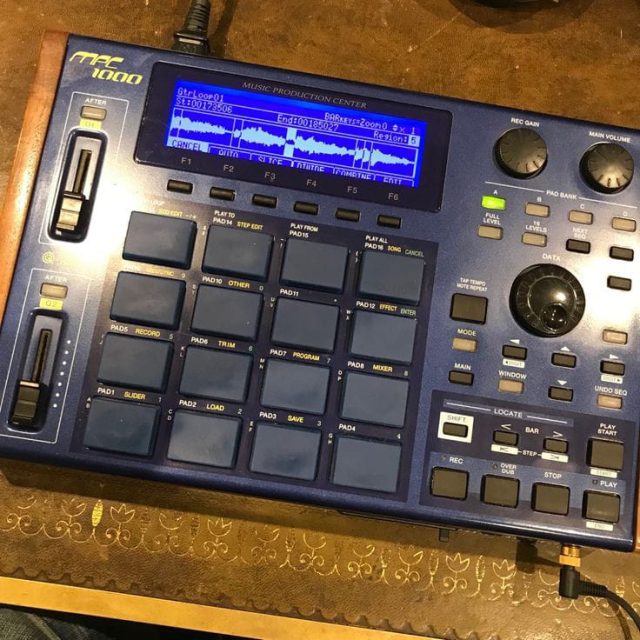Since its first release in 1988, the Akai MPC (Music Production Center) has transformed the music production landscape, becoming a go-to for producers across genres. Renowned for its unique combination of sampling and sequencing, the MPC has played a pivotal role in shaping the sounds of hip-hop, R&B, and beyond.
A Groundbreaking Beginning
The journey started with the MPC60, a groundbreaking collaboration between Akai and Roger Linn. This first model combined 16 velocity-sensitive pads, sampling, and MIDI sequencing into one device, revolutionizing music production workflows. Linn is the creator of the popular “Linn Drum” which makes the collaboration monumental.
By 1991, the MPC60II was released and it significantly improved portability, while the MPC3000 (1993) ushered in 16-bit stereo sampling and greater memory. This model became a favourite among legendary producers like Dr. Dre and Pete Rock, further cementing the MPC’s status in music history.
Expanding Capabilities
The MPC2000 (1997) brought rather affordable access to professional production tools, while its successor, the MPC2000XL (2000), added advanced features like time-stretching and slicing, making it essential for sampling enthusiasts like myself.
The early 2000s saw the launch of the MPC4000, a more expensive model offering 24-bit sampling and USB connectivity. Compact options like the MPC1000 (2004) and MPC2500 (2005) made production more accessible, while the MPC500 (2007) introduced battery-powered portability for on-the-go creators.
Rise of the Digital Age
As production tools moved toward digital integration, Akai introduced the MPC Renaissance and MPC Studio in 2012, through the fusion of hardware functionality with software compatibility.
In 2017, Akai launched the MPC Live and flagship MPC X, standalone devices that redefined production workflows with touchscreens, internal storage, and battery-powered operation. It’s worth noting that the MPC Live comes with a built in speaker with great sound, this again took compatibility a notch higher because you can get rid of all cables and cook peacefully in your backyard away from the kids when they may be sleeping or owning the house.

The MPC One, released later, offered a more affordable yet powerful entry point for producers while maintaining the iconic MPC workflow.
The MPC Live II further enhanced portability, adding built-in speakers and extended battery life, making it a go-to device for professionals seeking flexibility and mobility.
A Producer’s Perspective
As a music producer, I’ve always admired the MPC’s role in crafting timeless hits. While I don’t yet own an MPC, I use the MPK Mini MK3 in tandem with MPC Beats, Akai’s free software that mimics the hardware’s functionality. This setup has allowed me to dive into the art of sampling, a passion that began before I produced “Free Night Call” for Sarkodie.
Sampling old records by “chopping” them into modern beats offers a creative fulfillment that’s hard to replicate. The tactile experience of flipping samples, stacking drums, and arranging patterns mirrors the essence of music’s timelessness. MPC Beats has made this journey accessible while showcasing the MPC’s iconic workflow.
Though learning to navigate MPC workflows takes time—it took me about a month to fully grasp the software—it’s a challenge that sharpens creative skills. The ability to seamlessly sample and integrate one-shot drum kits has become a cornerstone of my production process, highlighting why the MPC is revered by industry greats like Kanye West, Just Blaze, Pete Rock, Dr. Dre, Jermaine Dupri, DJ Mustard, Guru and 9th wonder, now these names should give you an overview about the product’s longevity because in 2024 one of the biggest songs in hip-hop titled “Not Like Us” by Kendrick Lamar was produced by DJ Mustard with the Akai MPC 2500.
Why the MPC Endures
The Akai MPC remains an icon in music production, evolving with technology while staying true to its essence. From its early days as a revolutionary sampler to its modern iterations like the MPC Live II and MPC One, the MPC continues to inspire producers across generations.
Whether through the hardware or MPC Beats, Akai empowers musicians to explore their creative potential. For those passionate about sampling and beat-making, the MPC is more than a tool—it’s a legacy that continues to shape the future of music and that makes me happy to own and use Akai products for music production.

















